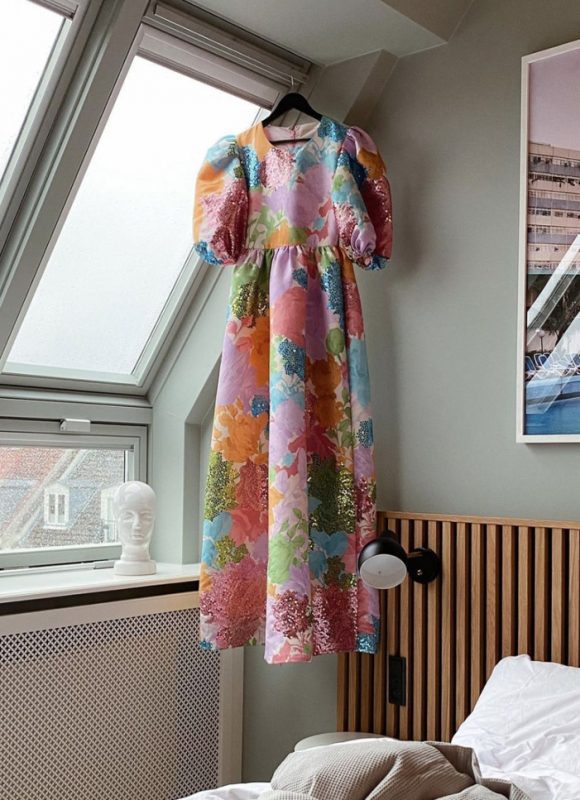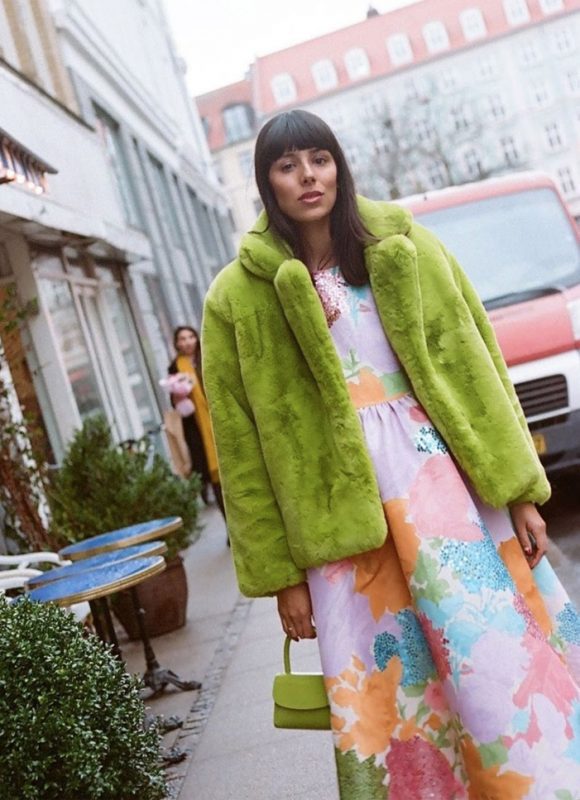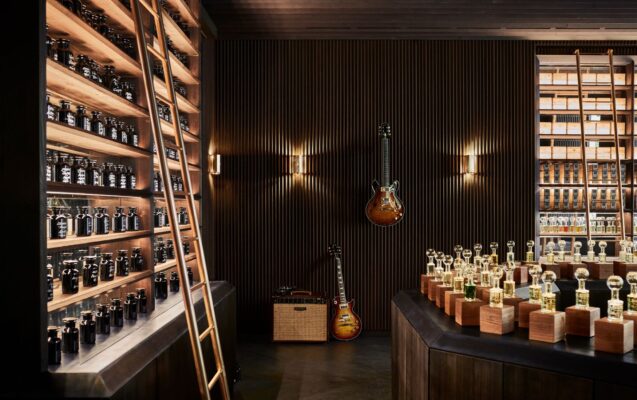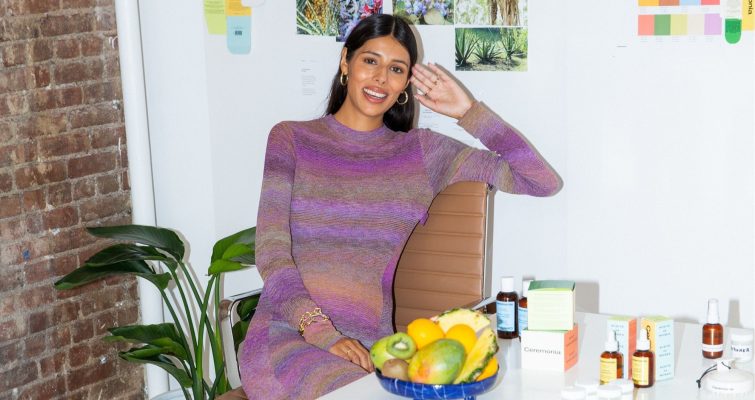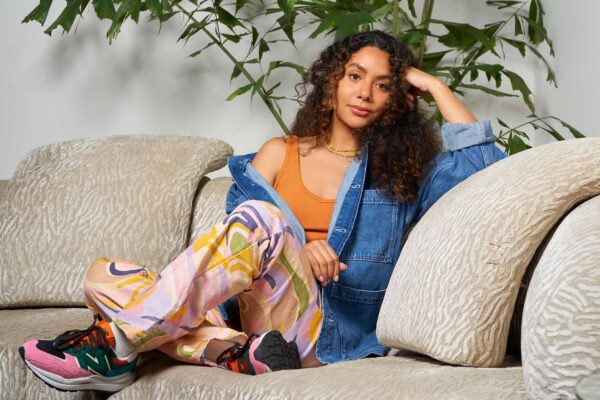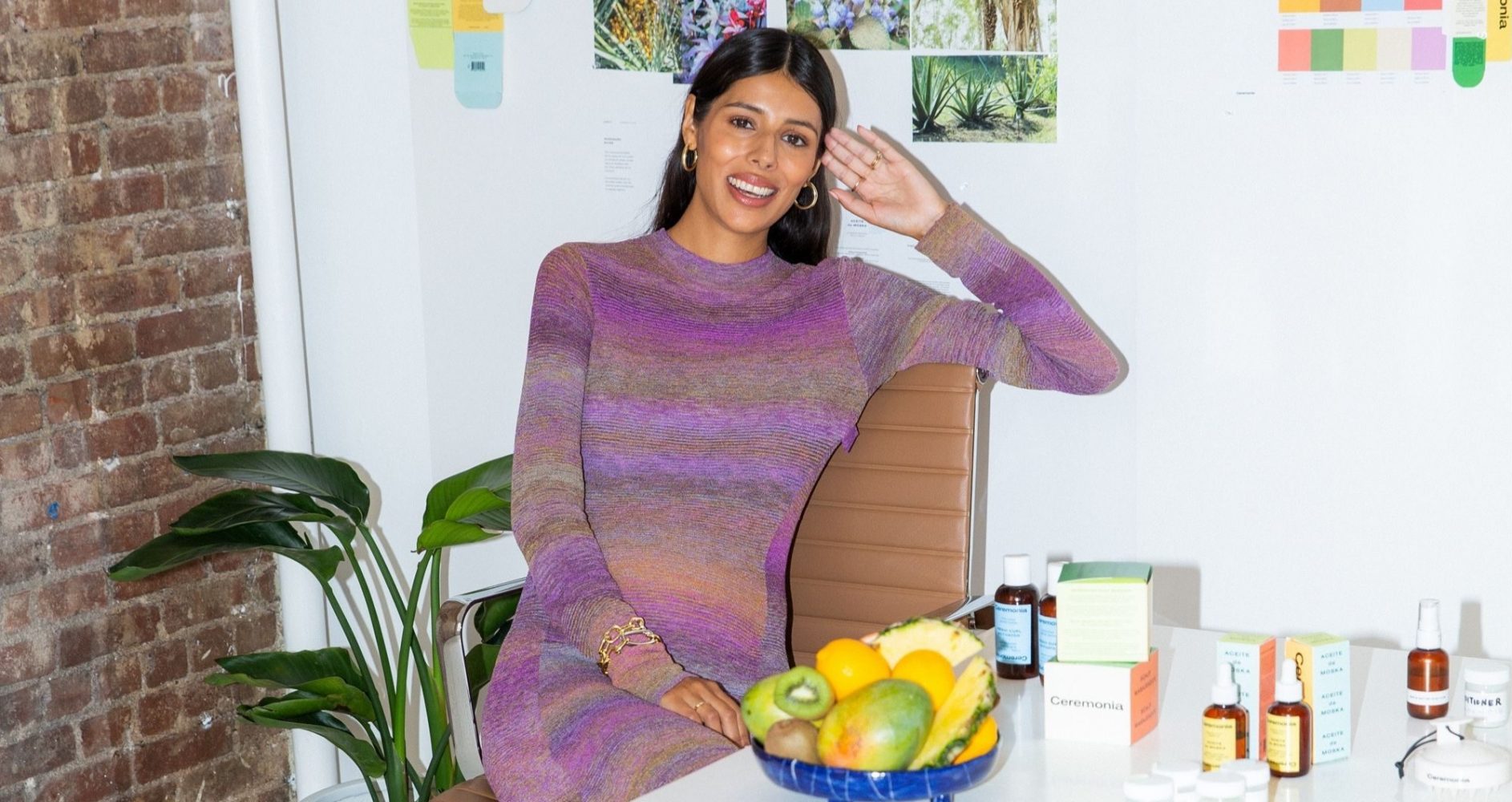
CAFECITO CON
BABBA C. RIVERA: “SENTÍ UN FUERTE SENTIDO DE RESPONSABILIDAD PARA IMPULSAR EL CAMBIO”
Name: Babba C. Rivera
Profession: Entrepreneur, Founder @myceremonia
Place of birth: Sweden
Zodiac sign: Sagittarius
Instagram: @babba
LATINNESS: First things first, coffee or tea?
BABBA: I drink green tea without anything in it. No milk, or sugar or anything.
LATINNESS: So let’s start from the beginning. You’re Swedish born to Chilean parents, correct?
BABBA: Yes, I was born and raised in Sweden, but my parents always thought they would move back to Chile. They thought of Sweden as a temporary stay during the Pinochet dictatorship. When I was three years old, we actually moved back to Chile for two years, and then I think it became evident to my mom that this sort of fantasy dream she had of going to Sweden for a little while and then going back to her country was not really a reality anymore. The country had changed so much, and more importantly, my mom had changed so much. Sweden is a very progressive country, it’s very female rights and everything, so I think she found it really, really strange to suddenly go back in time almost. My mom and my dad didn’t have any professions to fall back to in Chile, so to start over a life with two kids in South America is challenging. They decided to go back to Sweden again, “temporarily” for the kids. They thought that when the kids were old enough, they were going to move back to Chile. They’re still in Sweden.
LATINNESS: What was it like growing up in Sweden with Latin heritage?
BABBA: I grew up with this sort of double identity because at home we had a very Chilean household, eating pan con palta, lechuga con limón, all the Chilean things. My mom would always make fun of Sweden because she thought they made their salads without aliños, and would say “Cómo ponen la ensalada así seca?” (How can they serve the salad dry like that?) In my home, obviously, everything was Iike aceite y limón y mucha sal.
I studied in Sweden, just like every other Swedish kid. Sweden is a socialist country, so education is free. I grew up in a small town, and then moved to Stockholm, the capital, to study marketing. That was a huge step because I had to save up a lot of money, on my own, to be able to make that move happen. Stockholm is expensive, and although education is free, you still need to pay for your housing, books and all of the things. That’s just to say that it was not an easy decision. I think for some people, they stayed in their home town to study at university so they could live with their parents, but I always had really big dreams, and I never liked the small town. I ended up getting a side job in Stockholm, and when I got that job, I made the move, and then that job paid for my rent and the books for school. I studied and made a living out of a shoestring budget, but it worked, I fell in love with Stockholm. I think that was the first time I felt less like an alien, because my hometown was very white. There was a Chilean community, but I wasn’t really part of it because I was so focused on making a better future for myself, and unfortunately, that meant trying to blend in as much as possible, so I didn’t engage much with the Latin community. Many in the Latin community in my hometown also didn’t continue their studies and things like that. A lot of them had kids very early, and so I wasn’t on the same page, just like most of the young kids there. If anything, that was hard for my mom because the Latin way -at least my family in Chile- is very much about the younger generations helping the older generations. A lot of the niños chilenos ayudan a poner la mesa en la casa (the Chilean children help to organize the table at home). They weren’t working so that they could help their mom. For me, I think it’s more important that I make a better future for myself so that I can then help my mom better versus poner el té y el pan (place the tea and bread). So I was the odd kid, but when I moved to Stockholm, I found so many other immigrant kids, just like me, who had bigger dreams for themselves and I met my best friend, Alexandra. She’s from Yugoslavia, and we connected so much on that sort of guilt and pride, living a different route in life.
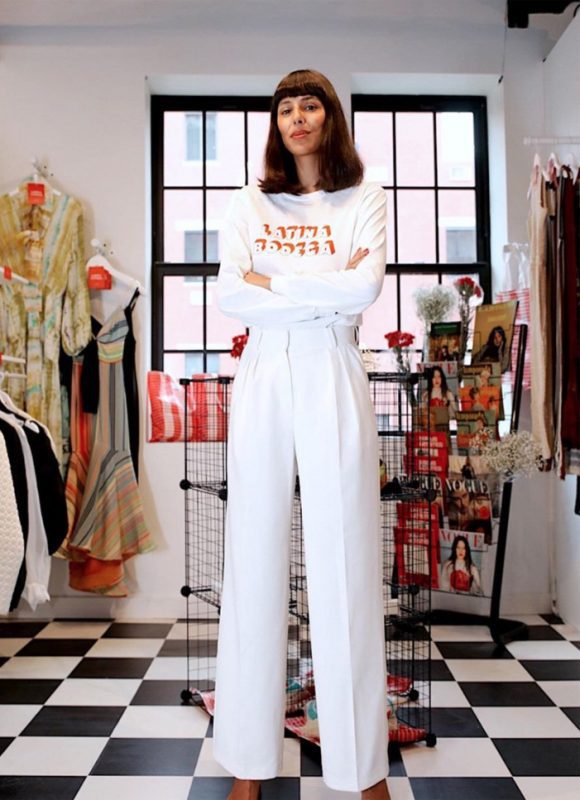
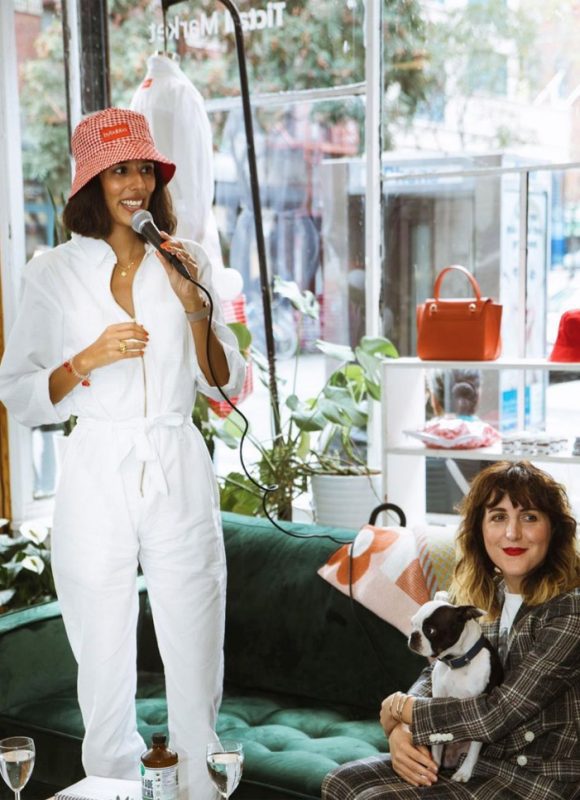
LATINNESS: And what brought you to New York?
BABBA: I started working after graduating, I moved to Berlin for a little while, I worked at an eyewear company called Mykita. It’s a really cool fashion brand. It was a dream come true to get a job there. I lived in Berlin for a year, and I loved the city, but the German work culture was very hierarchic, and since in Sweden everything is flat, I never coped with hierarchy. I decided to move back to Sweden after a year there, graduated and got a job straight out of graduating. I was 22 years old at Uber, and this was a weird coincidence. Uber was not big at the time. It was a small startup, they were just testing the waters in Europe, and they were looking to hire someone in Sweden to launch the service there. They had sent this American woman to Stockholm to find a team, and as she was scouting for talent, she got my name recommended a couple of times because I had just come back from Berlin where I had worked on a data driven marketing project. I was networking a lot, so I think I was just on the top of mind for people. Obviously that was what they needed because Uber was so extremely tech nerdy and it was all about the numbers, so I fit right in. I learned a ton, and I was super young, had no idea what I was doing, but it became the fastest growing launch market for us at the time, and globally, so that sort of put me in a very interesting trajectory within the company, which eventually led me to a relocation to the New York office. I had never been to the US before joining Uber. I obviously fell in love with New York, and throughout all of this, I met my now husband, but at the time, my boyfriend. He was building his company, and when I moved back and wanted to move to New York, here he was able to open his company offices in New York, too. We were able to work it out, and are still here now five and a half years later.

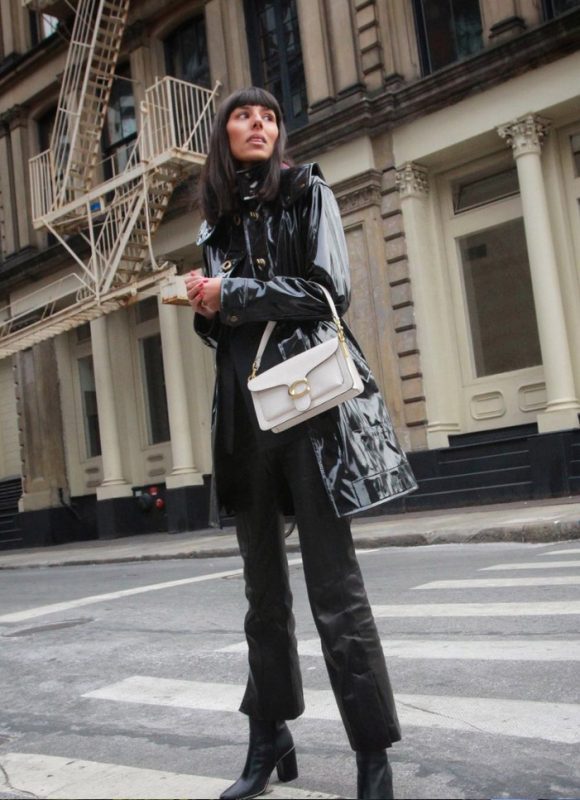
LATINNESS: Is he Swedish or Latin? We couldn’t help but notice his last name is Rivera…
BABBA: Swedish, but when we got married, he took my last name. He learned Spanish now, so he’s fluent. We’re both very progressive people, and we don’t like to follow the norm just because. So when we were getting married, we’re like “How come we always take a man’s name? There’s no reason for that anymore.” And he said “I wouldn’t mind taking your name as a way to also continue to celebrate your heritage and so forth.”


LATINNESS: So you moved to New York with Uber, then worked briefly at Away before eventually starting your own agency. What inspired this move from working for a brand to starting your own venture?
BABBA: I always wanted to start something of my own. Ever since I was a child I felt like an entrepreneur at heart, and also very opinionated. I didn’t like hierarchy and whatnot. So I think it just hit me really well to go on an entrepreneurial journey. The timing just felt right for me after. Technically it would have been right already after Uber, but I was too scared. It was so scary to leave a company I had been with for so long, so I left it for another company, and then while at that company, I realized I actually need to start my own thing. I didn’t have another five years in me to work for another person, so I decided to just test the waters. Because I wasn’t in a great financial situation at the time, I had to start something that felt manageable and not too scary, so an agency model felt doable. The company I’m starting now is a venture backed business, it’s a very different type of company, but I was definitely not ready for that at the time. I didn’t have any personal finances to fall back on if it didn’t work out.
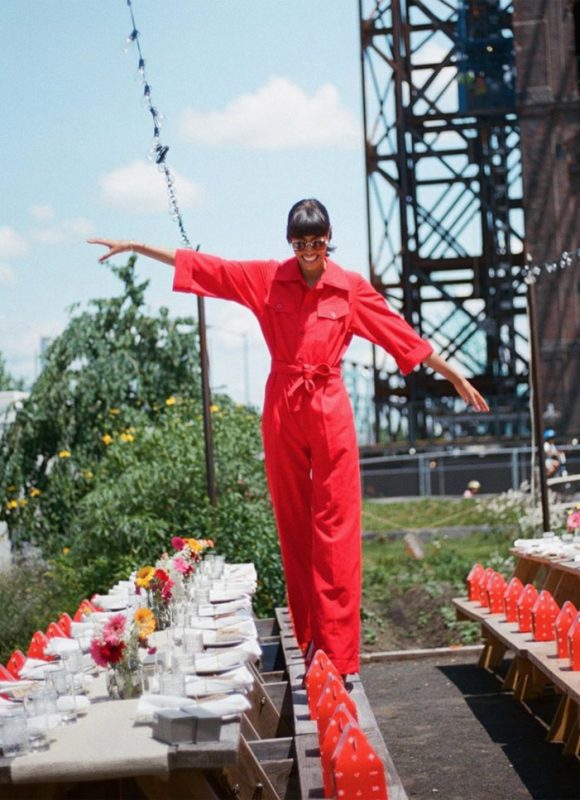
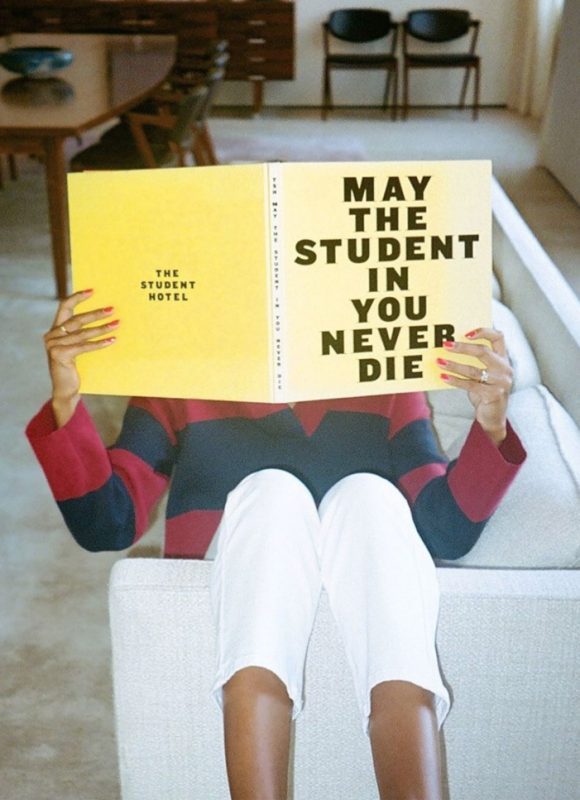
LATINNESS: You were Forbes 30 under 30, and your husband is also. Was that with byBabba?
BABBA: Yeah! We were the same year. It was when I was at Uber and he was with his own company. He was running an e-commerce startup called Tictail, which then got acquired by Shopify, which is where he is now.
LATINNESS: OK, you guys are going to have a family of little geniuses.
BABBA: They better be so they can keep Rivera alive.
LATINNESS: So, we’re excited about the launch of Ceremonia. Congrats! How did you come up with the idea for this project?
BABBA: Growing up as a Latin American immigrant in a homogenous country like Sweden, I never found myself represented in mainstream media and the products I consumed. Especially in beauty. Upon arriving in the U.S., I reconnected with my Latinx heritage thanks to the big population of Hispanics here. For the first time, I could see myself in others and realized how many have grown up in-between cultures, just like myself.
However, despite the modern Latinx community I met, coupled with the fact that Hispanics account for 20% of the U.S. population, I still witnessed an enormous void of Latinx representation in almost every aspect of my life; professionally, in the media, the brands I consume and not to mention role models in entrepreneurship. As such, I began to feel a strong sense of responsibility to propel change.
Ceremonia is a clean hair care brand rooted in Latinx heritage, born out of the desire to celebrate the richness of the Latin culture while highlighting the next generation of Latinx.


LATINNESS: What was your relationship with your hair when growing up?
BABBA: I didn’t like my hair growing up. As I grew up in Sweden, where everyone was blonde and had thin and tamed hair, I remember hating my thick hair that was so wild in comparison to my Swedish friends’ hair. I fought my waves, frizz and flyaways so much, so you can only imagine how excited I was when I later on discovered the hair straightener… It became like an addiction for me, I would bring it everywhere. Straightening my hair on a daily basis, if not multiple times a day, combined with bleaching my hair to be less dark, completely killed my hair. I could never just let my hair air dry or leave the house without first spending about an hour styling it, and it just kept getting more and more dry and damaged.
Today, I am so happy to be in a place where I can embrace my natural hair instead of trying to make it something it’s not.
LATINNESS: We also saw you co-founded an organization called Her USA. Can you tell us a bit more about this project?
BABBA: Yeah, this is something that has been a passion project from day one when I moved to New York. I didn’t have any community here, I didn’t know anyone, actually. I always had a ton of girlfriends and female professionals around me in Sweden, so when I moved to New York, I just felt like I didn’t want to build my life just us as a couple. It’s so important for me to build an individual path and have a professional community. It started with hosting dinners at my place. I didn’t have a fancy place and I definitely didn’t have a ton of money, so I was just cooking at home, all sweaty when people showed up, and trying to host and serve. After a few months, it started to grow organically, until I was like, “I can’t feed everyone in my apartment anymore!” We started to have people pay for their dinner ticket and worked with restaurants to host us, and we had closed rooms at around 20-25 women per dinner. This idea with Her community is that we think women need to support each other, obviously, but we think that we’re best equipped to do that when we can connect on an authentic and vulnerable level. So instead of the traditional networking, it’s very much about taking down your guard, taking off your costume and showing up as a human, and it becomes really personal. I’ve cried at many dinners because it’s so rare just when you take down that persona you carry all the time, and then finally, the room of support. When we ask everyone to share, what is something that we can help you with, everyone gets to put out an “ask” to the room, and sometimes the “asks” are really personal and vulnerable. It’s meant to be a support for women in their careers and lives.
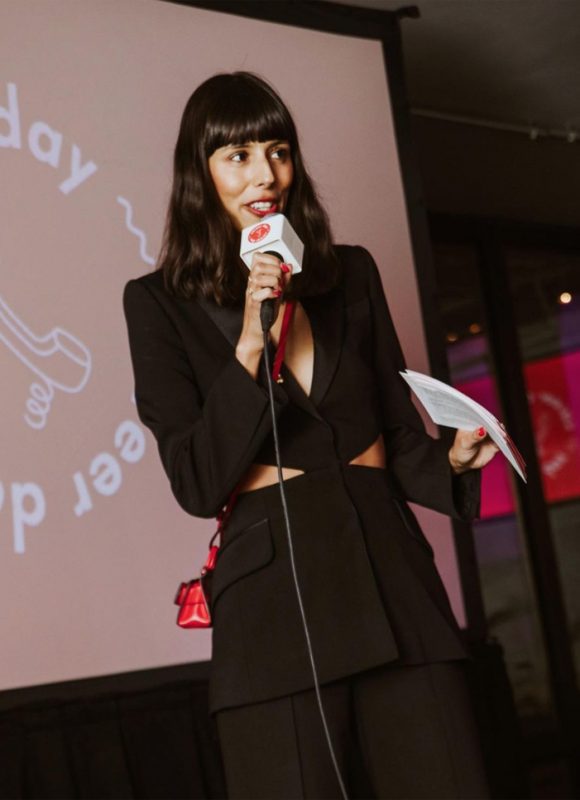
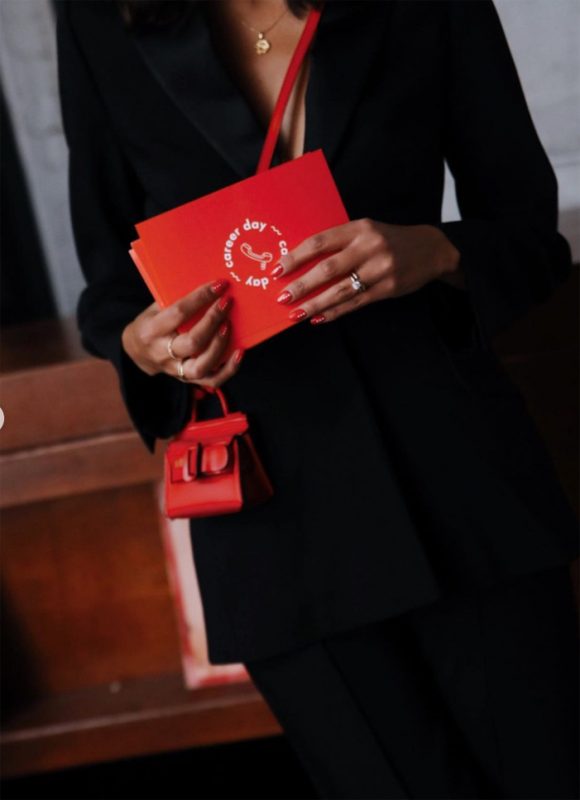
LATINNESS: Do you have any advice you would offer for aspiring entrepreneurs?
Babba: The best advice I ever received was actually from my now husband. He has been a huge behind the scenes coach for me. I think he definitely doesn’t get even close to the credit that he deserves. He comes from a family of artists, a very creative environment, but not super rich. When I met him, I just admired the way he approached life, he was always so fearless, and I think the best advice that he ever gave me was to always ask myself, “What’s the worst thing that could happen?” Many times, when you try to boil it down to what is the worst thing that could happen, you realize it’s not that bad. Oftentimes it just means you’re still where you are. For example with Uber, I was super afraid of asking for my relocation to New York, and he said, “But what’s the worst thing that could happen? That they say no, and then you still have the job you have today. Honestly, you owe it to them to tell them, because if you don’t get a change in your career within Uber you are going to go elsewhere pretty soon because you’re getting bored.” It’s that fearless, taking risks and being OK with not everything needing to be a success, but rather being an important part of the journey. That’s always the advice I give: We should focus on the journey and not so much the destination. I think when we focus too much on an end goal, we put ourselves up for failure because we’ve become very attached to a certain outcome that we can’t control, but we can control today, and the next step and the step after that. If we focus on the journey and having fun along the way, you can never regret it because you were having fun.
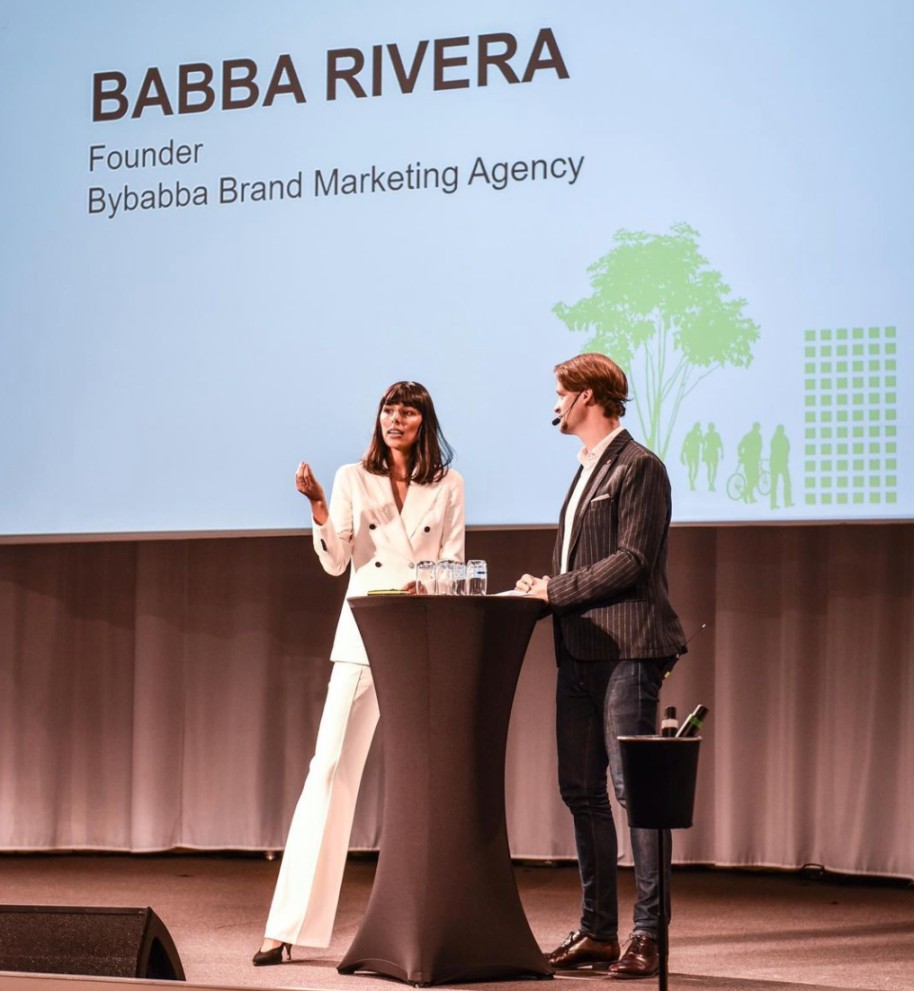
LATINNESS: That’s awesome. We both left corporate jobs, so we can identify with this.
BABBA: That’s a big passion for me, to inspire and prove that not everything needs to be perfect on paper. I think most of the milestone decisions I’ve made were non milestone decisions at the time. Joining Uber was not something to celebrate, everyone was super worried for me. My mom was like “Are you joining a taxi company?” Sometimes, at the time, it doesn’t look that amazing, but if it feels right and you were having fun during the moment, then it always pays off.
LATINNESS: Besides your entrepreneurial spirit, you also have strong ties with fashion. When you started out, did you envision yourself working in fashion?
BABBA: No. I always thought fashion was sort of a hobby and something that can be done for fun, but it shouldn’t be your job, so it’s interesting how later in my career it came back as my job. In Uber, when I relocated to New York, my initial role was Head of Fashion Partnerships. I think you’re always going to be good at the things that you’re passionate about, so naturally fashion kept coming back for me because it was a personal passion of mine.
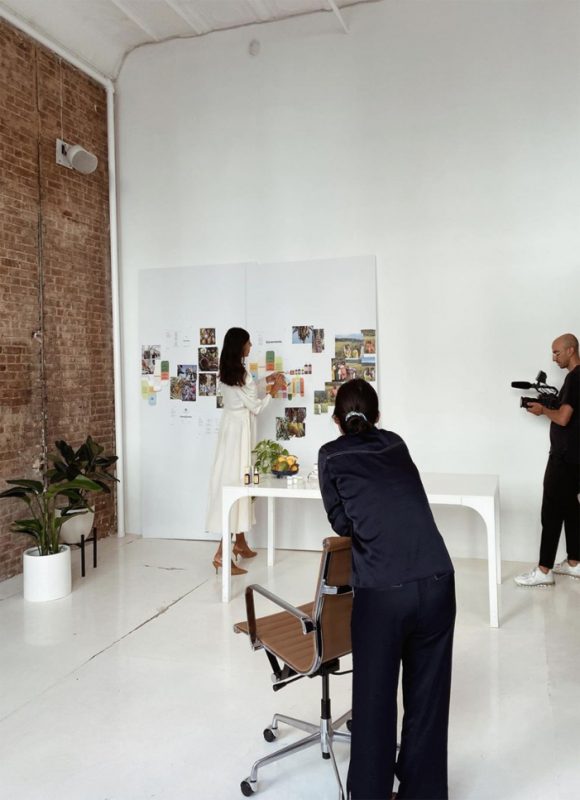
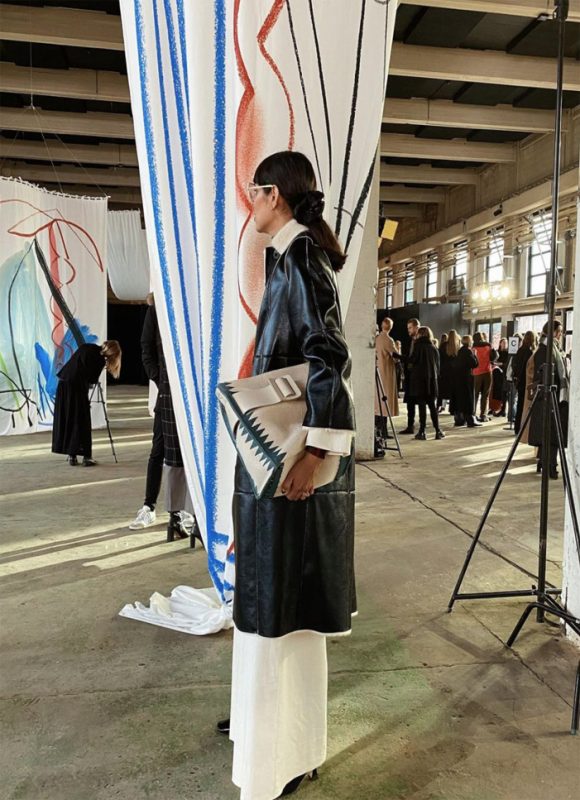
LATINNESS: Nordic women are known for their cool style and effortless beauty. Then you have Latin women, who love color, sensuality and are always perfectly put together. Which style do you identify with? And what does beauty mean to you?
BABBA: Growing up I never felt Latin enough because I was tall and skinny, and a lot of times people think I’m Indian. The images I would see of Latina women in Hollywood were always, you know, mas culonas, more sexy, and I never identified with traditionally sexy, I found that attention uncomfortable. Naturally, from a style perspective, I didn’t want to play off a sexy attention, and I don’t know where that comes from, but I just think I grab so much attention being so tall already, that I didn’t want to turn that attention into sexual attention. I developed a style that was the opposite, sort of playful and more humoristic, with a touch of business. I love the contrast between masculinity and cute, so like a puffy dress, but then with a blazer or, my favorite outfit combo is a really masculine watch, and a cute dress to step into a board meeting. I love that quality of not fitting into a stereotype.
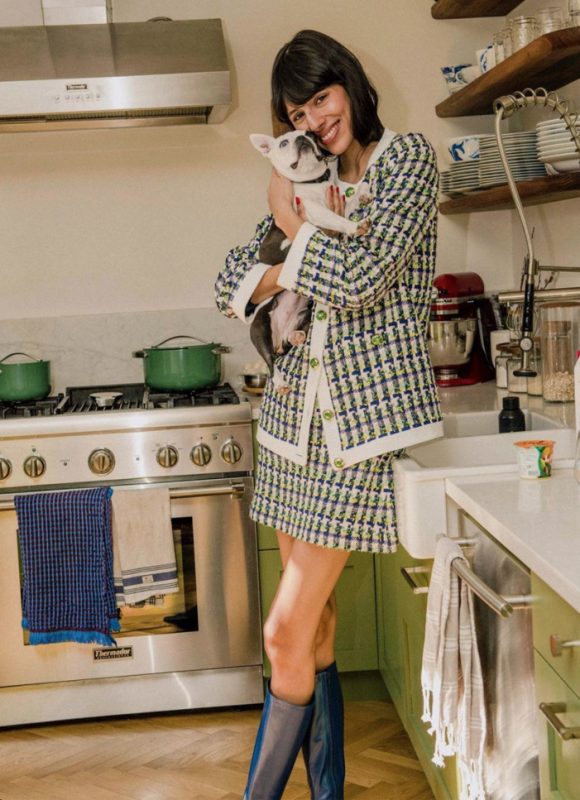
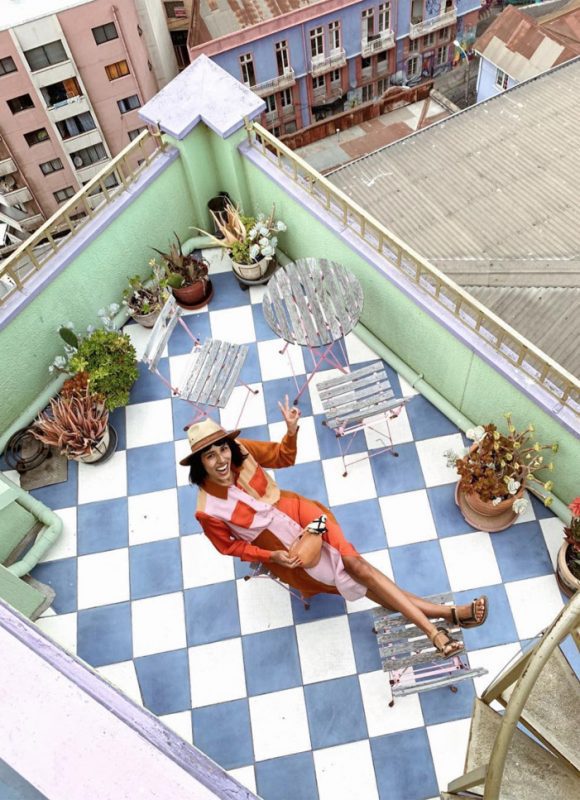
LATINNESS: What do you love most about the Latin culture?
BABBA: I would say the colors. I grew up in Sweden, where everyone dressed in black, and so I always loved going out shopping with my tia and just indulging in colors and patterns. I also think craftsmanship is really special. In Sweden, we have a lot of low priced fashion like H&M and all of those chains, so it was a nice contrast, everytime I would go to Chile, to be more in touch with craftsmanship.
